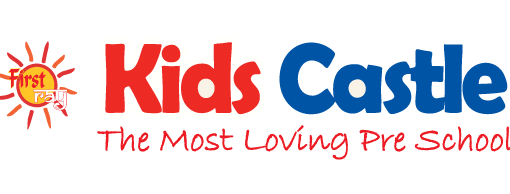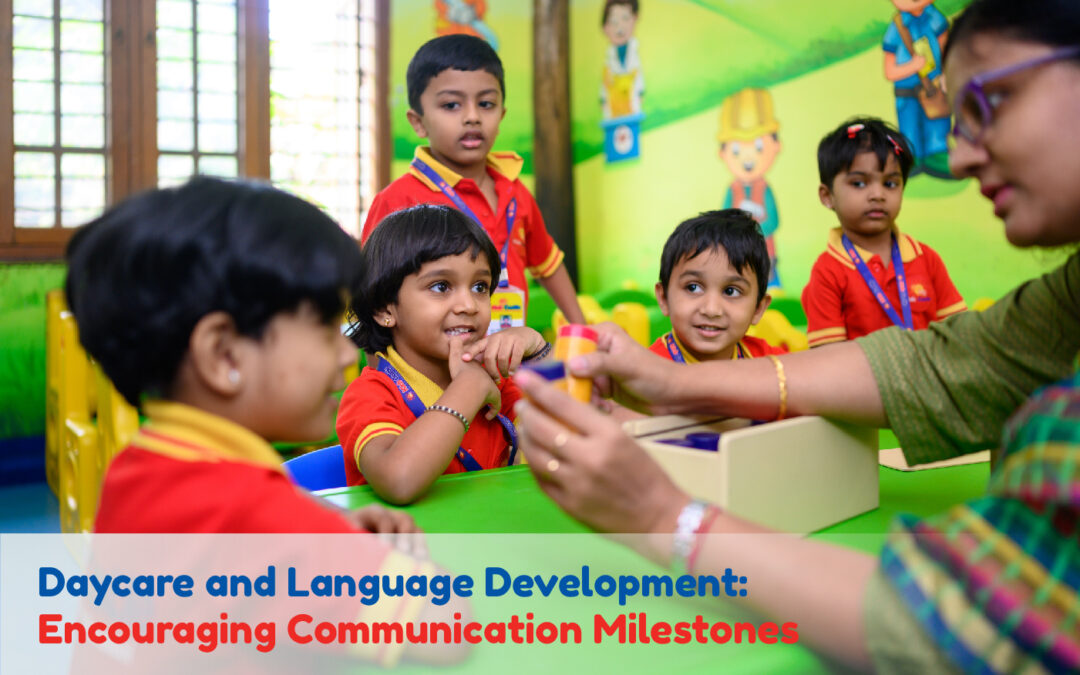Children are highly receptive to language and quickly pick up the words that interest them.
You might have noticed that children quickly grasp and repeat the words spoken with strong emotions. Daycare helps your child develop language skills by providing an active setting involving other children and caregivers.
Here are some ways Daycare can help build a foundation for language skills in their early years.
Interaction with new people
Daycare creates opportunities for your child to interact with other children and caregivers.
Conversing with caregivers helps them learn how to express themselves boldly. It can be conveying their need, wanting to play, or complaining about others mischief.
Kids also learn to listen, observe, pick up new instructional words, and comprehend them while conversing with their peers or adults.
Expand their vocabulary
Daycare introduces your child to various experiences, objects, and concepts. It helps them expand their vocabulary as they learn the names of multiple items, toys, eateries, and activities around them.
In addition, caregivers encourage children to speak politely which in turn improves their positive behaviour. Please read our blog Playgroup Etiquette: Nurturing Positive Behaviour and Respectful Interactions.
Exposure to different dialects
A daycare setting exposes your child to a diverse range of vocabulary, different dialects, and language styles. It broadens their views and imparts an acceptance of diversity within a language.
In cities like Bangalore, your child can have an opportunity to grow among kids from various cultural backgrounds, hailing from different parts of the country. It fosters cultural sensitivity and appreciation of linguistic diversity.
Storytelling
Storytelling is an integral part of playgroups and significantly contributes to language development in children. As they listen to the narrator, they learn how to use words effectively.
As they observe the storyteller explaining something in detail, children learn alternative words to describe the same thing and learn to choose the appropriate words.
Read our blog on Explore different methods of telling stories to your kids.
Structured language activities
Fun activities like rhyming games, sing-alongs, and tongue twisters help children grasp the phonological aspects of a language. It is essential for proper pronunciation and word recognition.
Encouraging verbal communication
Many soft-natured, introvert children talk less and caregivers at the Daycare encourage them to communicate verbally and speak in a louder voice. It boosts their confidence and improves their involvement in activities and conversations with other children.
Group activities
Engagement in group activities encourages your child to ask questions, express their opinions and talk in a group addressing their peers. It promotes your child’s ability to structure and articulate their thoughts.
Play
Roleplays or staged dramas bring out your child’s knack for imitation and acting. It fosters creative vocabulary, which enhances language development in children.
Monologues or mono-acting improves your child’s pronunciation and ability to remember long scripts or speeches.
Conclusion
Daycare provides a supportive environment for language development in children, but it also depends on other factors. They include your child’s temperament, family interactions, and exposure to the language outside of Daycare. Therefore, ensuring a language-rich environment at home is very important.
At kidcastle Daycare, we encourage every child to develop new skills, including language, by engaging them in various activities.
Subscribe to our YouTube channel to watch our children participate in our daycare activities.

